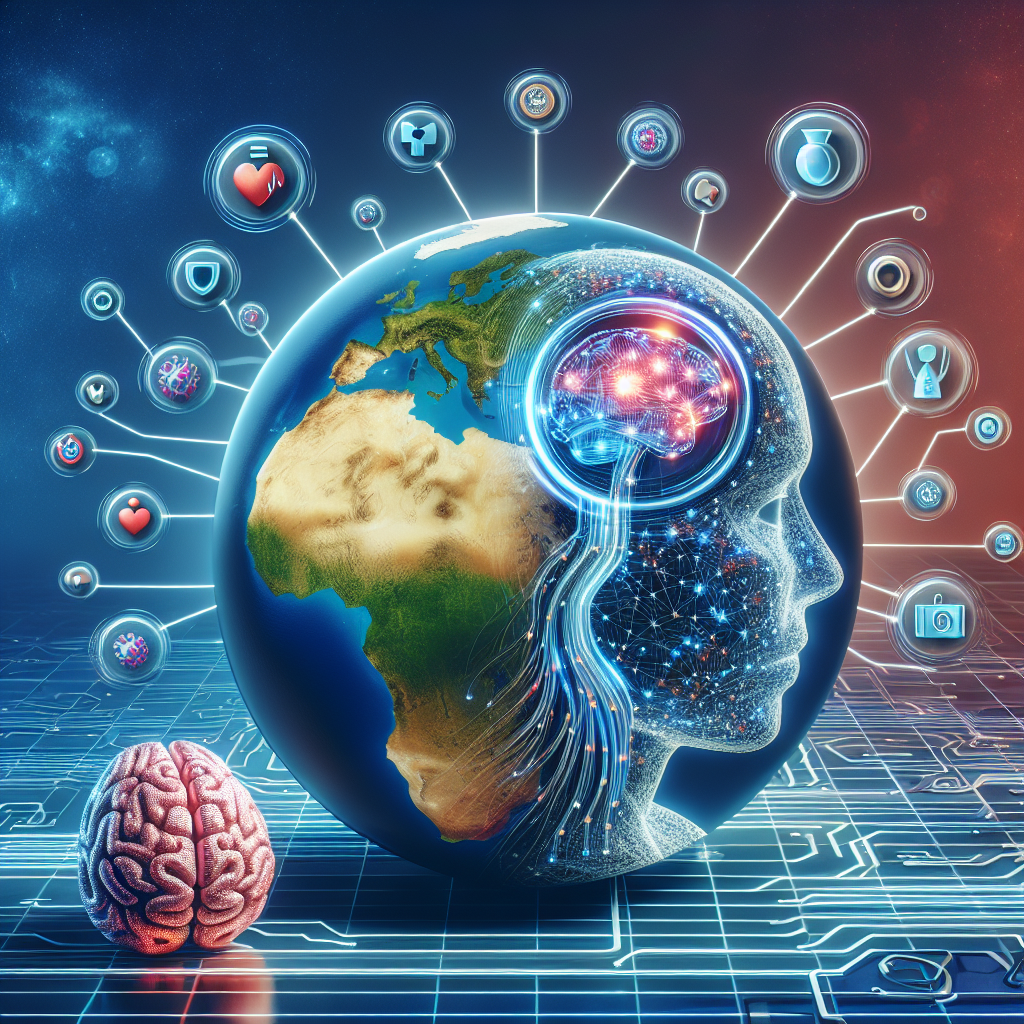Artificial Intelligence (AI) has the potential to revolutionize the healthcare industry by empowering consumers to take control of their own health. By leveraging AI integration, healthcare providers can offer personalized and proactive care that meets the individual needs of each patient. This not only improves patient outcomes but also reduces costs and enhances overall efficiency in the healthcare system.
AI integration in healthcare can take many forms, from virtual health assistants that provide personalized recommendations and reminders to predictive analytics that help identify at-risk patients before they develop serious health issues. By harnessing the power of AI, healthcare providers can deliver more accurate diagnoses, develop more effective treatment plans, and improve overall patient satisfaction.
One of the key benefits of AI integration in healthcare is the ability to provide consumers with real-time access to their health data. By using AI-powered tools, patients can track their own health metrics, receive personalized recommendations for improving their health, and communicate with their healthcare providers more effectively. This level of transparency and engagement empowers consumers to take an active role in managing their own health and well-being.
Another important aspect of AI integration in healthcare is the ability to streamline administrative processes and improve operational efficiency. AI-powered tools can automate routine tasks such as scheduling appointments, processing insurance claims, and managing medical records, freeing up healthcare providers to focus on delivering high-quality care to their patients. This not only reduces costs but also improves the overall quality of care by minimizing the risk of human error.
In addition to improving patient care and operational efficiency, AI integration in healthcare can also help to address some of the key challenges facing the industry, such as the shortage of healthcare professionals and the increasing demand for services. By leveraging AI-powered tools, healthcare providers can extend their reach and deliver care to more patients, regardless of their location or the time of day. This can help to reduce wait times, improve access to care, and ensure that all patients receive the treatment they need in a timely manner.
Despite the many benefits of AI integration in healthcare, there are also some challenges and concerns that need to be addressed. One of the main concerns is the potential for AI to replace human healthcare providers, leading to a loss of personalized care and empathy. While AI can certainly augment the capabilities of healthcare providers, it is important to remember that it is not a substitute for human interaction and compassion.
Another concern is the potential for AI to perpetuate biases and inequalities in healthcare. AI algorithms are only as good as the data they are trained on, and if that data is biased or incomplete, it can lead to disparities in care. It is important for healthcare providers to be mindful of these potential biases and take steps to ensure that their AI systems are fair and equitable.
In order to harness the full potential of AI integration in healthcare, it is essential for healthcare providers to invest in the necessary infrastructure, training, and support. This includes ensuring that their staff are properly trained in using AI-powered tools, that their systems are secure and compliant with data privacy regulations, and that they have the resources and support they need to effectively integrate AI into their workflows.
Overall, AI integration in healthcare has the potential to empower consumers to take control of their own health and improve the quality and efficiency of care delivery. By leveraging the power of AI, healthcare providers can offer personalized, proactive care that meets the individual needs of each patient, while also addressing key challenges facing the industry. With the right approach and investment, AI integration in healthcare has the potential to revolutionize the way healthcare is delivered and improve outcomes for patients across the globe.
FAQs:
Q: How can AI integration in healthcare improve patient outcomes?
A: AI integration in healthcare can improve patient outcomes by providing personalized care, early detection of health issues, and more accurate diagnoses and treatment plans.
Q: What are some of the key benefits of AI integration in healthcare?
A: Some key benefits of AI integration in healthcare include improved patient care, operational efficiency, access to care, and cost savings.
Q: What are some of the challenges and concerns associated with AI integration in healthcare?
A: Some challenges and concerns associated with AI integration in healthcare include the potential for AI to replace human healthcare providers, perpetuate biases and inequalities, and the need for investment in infrastructure and training.
Q: How can healthcare providers address potential biases and inequalities in AI algorithms?
A: Healthcare providers can address potential biases and inequalities in AI algorithms by ensuring that their data is unbiased and complete, and by taking steps to ensure that their AI systems are fair and equitable.
Q: What steps can healthcare providers take to effectively integrate AI into their workflows?
A: Healthcare providers can effectively integrate AI into their workflows by investing in the necessary infrastructure, training, and support, and by ensuring that their staff are properly trained in using AI-powered tools.

